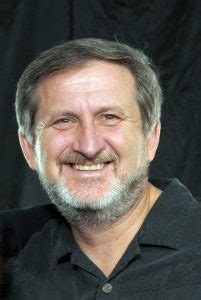A Quote by Stephen Jay Gould
All science is intelligent inference; excessive literalism is delusion, not a humble bowing to evidence.
Related Quotes
Science seeks the truth. And it does not discriminate. For better or worse it finds things out. Science is humble. It knows what it knows and it knows what it doesn’t know. It bases its conclusions and beliefs on hard evidence -- evidence that is constantly updated and upgraded. It doesn’t get offended when new facts come along. It embraces the body of knowledge. It doesn’t hold on to medieval practices because they are tradition.
In evolution, as in all areas of science, our knowledge is incomplete. But the entire success of the scientific enterprise has depended on an insistence that these gaps be filled by natural explanations, logically derived from confirmable evidence. Because "intelligent design" theories are based on supernatural explanations, they can have nothing to do with science.
In no other field of scientific endeavor do otherwise intelligent people feel free to make public claims based on prejudice and ignorance. Yet in relation to psychic phenomena, committed materialists feel free to disregard the evidence and behave irrationally and unscientifically, while claiming to speak in the name of science and reason. They abuse the authority of science and bring rationalism into disrepute.
The problem with intelligent-design theory, is not that it is false but that it is not falsifiable. Not being susceptible to contradicting evidence, it is not a testable hypothesis. Hence it is not a scientific but a creedal tenet - a matter of faith, unsuited to a public school's science curriculum.
It was while I was studying philosophy that I came to understand. . . that it is no sign of moral or spiritual strength to believe that for which one has no evidence, neither a priori evidence as in math, nor a posteriori evidence as in science. . . . It's a violation almost immoral in its transgressiveness to shirk the responsibilities of rationality.
On the first page of the Bible there is an instance of how literalism is but an invitation to transcend the image to which literalism points. That first page is not geology, biology or paleontology; it is high religion. For there we are told who we are in terms of our constititutive text. And if we could understand that, we would worrying about whether the antelopes or the cantaloupes came in a certain order.



































